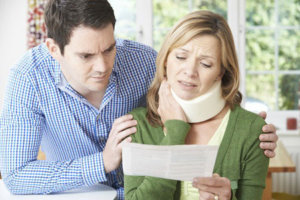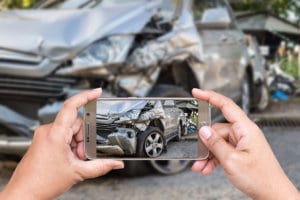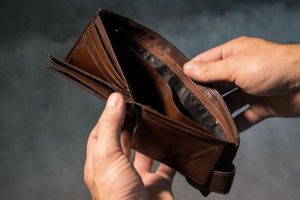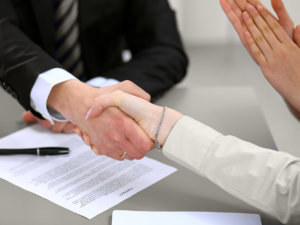Frequently Asked Questions about Personal Injury:
Frequently Asked Questions about Personal Injury with answers on what to do after an accident, negligence, damages, medical expenses, liability, and more.
FREQUENTLY ASKED Questions about Personal Injury:
Q: What is a Personal Injury?
A: A personal injury is when a person experiences physical or mental injury as a result of negligence or harmful act by someone else.
Q: When should you contact a personal injury lawyer?
A: It is best to contact a personal injury lawyer as soon as you are able after an accident or injury.
Q: IS THERE A TIME LIMIT ON WHEN CLAIMS NEED TO BE FILED?
A: Yes. In March of 2023, the statute of limitations for personal injury claims based on the theory of negligence was changed from 4 years to 2 years. As a result, beginning in 2024, the statute of limitations for any personal injury claims based on that theory of negligence is now just 2 years. Any accident that occurred after March 24, 2023 would be subject to this new 2-year statute of limitations.
Q: What are common types of Personal Injuries?
A: Car accidents are the most common type of personal injury cases we see here in Tampa. Accidents in the home, slip and fall injuries, boating accidents, motorcycle accidents, taxi accidents including Uber and Lyft ride share injuries, truck accidents, dog bites, defective products, premises liability, and inadequate security are also very common situations that result in personal or bodily injury.
Q: How do I know if I have a Personal Injury case?
A: In order to protect your rights, you should immediately contact a personal injury lawyer for a professional opinion regarding any accident or injuries you have experienced. We offer free consultations with detailed case evaluations so you have nothing to lose.
Q: What are Damages?
A: Any loses or expenses you or anyone else incurred as a result of an accident involving injury are considered damages which can often be recovered in a settlement.
Q: What types of damages are recoverable for Personal Injury victims?
A: Medical bills, lost wages (including overtime), hardships, inconveniences and monetary losses are recoverable damages in personal injury claims.
Q: How long after an accident can injuries show up?
A: Based on case studies, researchers have found that internal bleeding and/or bruising, also known as the “seat belt syndrome,” has been noticed between 24 hours and 3 days after an accident. Brain and neck injuries have emerged up to eight days after an accident and, in some cases, proven fatal.
Q: Should I go to the ER after aN accident?
A: Yes, you should go to the emergency room immediately after any accident if there’s any sign of injuries at all. Going to the emergency room helps you receive the care you need and begin your medical treatment program right away. If injuries are less severe, another option is to go to an Urgent Care Facility, which can help keep costs for treatment down.
Q: How long do you have after an accident to go to the hospital or seek medical treatment?
A: Most insurance companies consider 72 hours to be reasonable. This means that for insurance purposes, you have 72 hours to see a doctor before you risk a serious reduction in the compensation you receive.
Q: Are Personal Injury victims entitled to monetary recovery?
A: Yes, personal injury victims are entitled to recover monetary damages for all losses and expenses they incur as a result of an accident.
Monetary damages include compensation for medical bills, lost wages (including overtime), hardships and inconveniences such as pain and suffering, physical disabilities, disfigurement, permanent scars, mental anguish, emotional trauma, loss of enjoyment, loss of love or affection, embarrassment, mental disabilities, and property damage as well as out of pocket expenses.
Q: What kinds of hardships or inconveniences can I seek compensation for?
A: Many hardships or inconveniences can result in a loss to the victim. These most commonly include medical bills and lost wages. In addition, there are also protections in place which allow other recoverable damages including pain and suffering, physical disabilities, disfigurement, permanent scars, mental anguish, emotional trauma, loss of enjoyment, loss of love or affection, embarrassment, mental disabilities, and property damage as well as out of pocket expenses.
Q: What are out of pocket expenses and are they recoverable?
A: Out of pocket expenses include transportation charges, house cleaning, grass cutting and other expenses incurred from services rendered that cannot be performed by injured victims during the time of their recovery. Some out of pocket expenses can be permanent and ongoing for the remainder of a victim’s life.
Q: An accident caused me to miss work, can I recover lost wages?
A: Lost wages are one of the most common types of damages we recover for victims of personal and bodily injuries.
Q: Can I recover expenses for medical bills?
A: Medical bills including any doctor bills, hospital bills, expenses from surgery, any diagnostic charges, expenses from ongoing personal care, nursing fees, physical therapy sessions, prescription medications and more are eligible to be recovered in a personal injury settlement.
Q: Can personal injury be mental health or illness?
Q: What constitutes pain and suffering in a lawsuit?
A: Pain and suffering is a legal term that refers to a host of injuries that a plaintiff may suffer as a result of an accident. It includes physical pain, emotional distress and mental injuries such as fear, insomnia, grief, worry, inconvenience and even the loss of the enjoyment of life.
Q: How can I prove my pain and suffering?
Some documents your lawyer may use to prove that your pain and suffering exist include:
- Medical bills
- Medical records
- Medical prognosis
- Expert testimony
- Pictures of your injuries
- Psychiatric records
Q: How do you negotiate pain and suffering?
- Manage your expectations.
- Know what counts as pain and suffering.
- Support your claim with outside factors.
- Tell a vivid story of your pain and suffering.
- Describe your distress during recovery.
- Link evidence to your pain and suffering.
- Make the “Before and After” clear to the adjuster.
Q: How is pain and suffering compensation calculated?
A: The insurance company, or a jury, will determine how many days you are expected to be in ongoing pain or discomfort. They then apply your daily rate of pay to the equation and multiply the days of pain by your rate of pay per day.
Q: IS THERE A MAXIMUM AMOUNT THAT CAN BE AWARDED FOR PAIN AND SUFFERING?
A: Generally speaking, there is no cap on the amount of damages that can be awarded for general pain and suffering in Florida. However, if the lawsuit involves medical malpractice, then there is a limit of $500,000 that can be awarded.
Q: What are the Stages of a Personal Injury Claim?
- Appointing A Representative.
- Pre-action Protocols.
- Gathering Detailed Evidence Of The Accident.
- Gathering Medical Evidence.
- Negotiating A Potential Settlement.
- Fast-track And Multi-track Court Proceedings.
- Settling Out Of Court.
![Frequently Asked Questions about Personal Injury Documenting the scene of a car accident with photos can help Car Accident Lawyers with your case.]() FREQUENTLY ASKED questions about PERSONAL injury INVOLVING CAR ACCIDENTS:
FREQUENTLY ASKED questions about PERSONAL injury INVOLVING CAR ACCIDENTS:
Frequently Asked Questions about Personal Injury involving car accidents with answers on what to do after an accident and more.
Q: What should I do after a car accident?
A: Immediately following any car accident, victims should:
- Report the accident to local law enforcement and insist upon an accident crash report before leaving the scene.
- Seek immediate medical attention, even if you think you are not injured. Being involved in a car accident can result in severe shock, so any injuries may not be immediately apparent.
- Get the license number, personal and insurance details, and name of the other driver involved (take pictures).
- Ask for names and phone numbers of any witnesses present at the accident scene.
- Take pictures of your injuries and all damages as soon as possible.
Do not discuss the accident with anyone involved in the accident or give a statement to the insurance company or attorney for the “at-fault” driver. Anything you say can be used against you. Aside from the police, if anyone tries to question you, they should be instructed to speak with your lawyer or insurance company.
Q: Should I go to the ER after a car accident?
A: Yes, you should go to the emergency room after a car accident if there’s any sign of injuries at all. In all but the most minor car accidents, it’s a good idea to seek emergency room care. Going to the emergency room helps you receive the care you need and begin your medical treatment program immediately. Another good option if injuries are less severe is to go to an Urgent Care Facility, which can help keep costs for treatment down.
Q: What are the elements of a car injury claim?
A: Define the duty of care, establish breach of duty, determine negligence, prove liability, and verify damages.
Q: What does Duty of Care mean?
A: A driver of a motor vehicle has a legal duty to drive safely. If he or she drives recklessly, he or she breaches that duty.
Example: Obeying duty of care
Jim is observing all traffic signals while driving. He’s not speeding, texting, or distracted by his cell phone. He’s watching for other cars and pedestrians who may be trying to cross the road. Jim is driving safely while exercising his legal duty of care toward others.
Q: How is breach of duty established in a car injury claim?
A: When a driver knowingly fails to drive safely, and that failure results in injuries to others, that driver has breached his legal duty of care.
Q: How is negligence determined in a car injury claim?
A: Negligence does not include the intention to do harm. The harm is usually the result of being careless. When a driver breaches their duty of care, causing injuries to another person, the cause of the breach is usually the driver’s carelessness.
Q: What determines liability in a car injury claim?
A: Liability is the legal obligation or responsibility for one’s actions. Once negligence is established, the next step is proving liability. In some cases, the degree of liability can be lessened due to intervening forces.
Q: How are damages verified in a car accident claim?
A: Damages encompass the personal injuries and property damage caused by the accident. Damages can be verified through medical bills, physician records, repair estimates, and other supporting documents or photographs.
Q: What types of negligence can result in a car accident?
A: Our Tampa Car Accident Lawyers have recovered damages for victims of many types of negligence resulting in car accidents. The following list (while not complete) represents some of the more common types of negligence we’ve helped victims recover damages for:
- Failure to be aware of their environment, surroundings, or not seeing other drivers and pedestrians.
- Failure to maintain proper speed, whether exceeding the speed limit or driving too slow.
- Tailgating, or following entirely too closely behind another driver.
- Failure to yield to a right of way.
- Running red lights and stop signs, or failing to stop at red lights or stop signs.
- Losing control of the vehicle, reckless or careless driving.
- Unable to stop in time, rear end collisions, failure to use the brakes properly.
- Improper signal, lane changes, or failing to use the horn.
- Driving while impaired or under the influence of alcohol or drugs, including legal prescriptions.
- Driving on the wrong side of the roadway, highway, leaving the lane of travel, running off the road.
Q: How do you prove negligence in an auto accident involving injury?
A: There are many reasons why an auto accident that causes you injury may occur, and the main elements necessary to prove negligence are similar to any other negligence claim.
To make a claim you must prove the person you believe is responsible for your personal injury, loss or damage as a result of an auto accident:
- Owed you a duty of care and breached the duty of care they owed you.
- You suffered a loss or injury or other damage.
- Your loss, injury or the damage occurred as a result of the breach of the duty of care.
Personal Injuries must be:
- reasonably foreseeable
- there must be a relationship of proximity between the plaintiff and defendant and
- it must be ‘fair, just and reasonable’ to impose liability.
However, these act as guidelines for the courts in establishing a duty of care; much of the principle is still at the discretion of judges.
Q: After proving negligence, what kinds of damages can I seek recovery for if I am a victim in a car accident?
A: Here in Florida, and particularly in the cases our law firm has handled over the years here in Hillsborough County, most auto accidents which result in a personal injury have resulted in our clients receiving several different types of recoverable damages, including the following:
- Past and future physical pain and/or mental anguish and suffering compensation
- Past and future disfigurement compensation
- Past and future physical impairment compensation
- Recovery for lost wages, or loss of future earning capacity
- Past and future medical expenses
- Punitive damages (in some cases)
Q: What is a breach of duty?
A: A breach of duty is another term for negligence. In order to prove negligence, there must be evidence to show that the defendant failed to use ordinary care. In other words, that which a reasonable person of ordinary prudence would have done if they were under the same or similar circumstances.
Q. If an adjuster from the “at-fault” driver’s insurance company calls me, what should I do?
A: Do not speak with the adjuster or anyone except for your lawyer or insurance company. You should refer the adjuster or anyone else to your lawyer or insurance company. And never speak to any attorneys from the side of the “at-fault” driver.
Q. Why would an insurance adjuster from the “at-fault” party call me?
A: The adjuster from the “at-fault” party is not calling you to help you or protect your rights, do not speak to them. They may present themselves in a friendly way and might offer to pay for medical bills. This is typically an indication that the insurance company feels they are liable – and also an effort to get you to settle for less than you’re probably entitled to. Do not accept or sign any check, payments or release without first consulting with your attorney. Without proper legal representation, you can hurt your chances for full recovery for damages and may not fully realize how seriously you were injured.
Q: What is the 14-Day Rule?
A: In order to qualify for your Personal Injury Protection (PIP) benefits, you must receive medical treatment within 14 days of the accident. If you do not seek medical treatment within this 14-day window, your insurance company will have the right to deny medical benefits. The types of PIP benefits received if you comply with the 14-Day Rule are:
- Cover up to $10,000 in medical benefits and disability benefits
- Cover up to $5,000 in death benefits
- Cover up to 80% for hospital visits, ambulance, and nursing care
- Cover up to 80% for x-rays, surgeries, and physical therapy
Q: What is Uninsured/Underinsured Motorist (UM) Coverage?
- Uninsured/Underinsured Motorist (UM) Coverage will give you the ability to recover benefits such as future medical expenses, lost wages, and pain and suffering if you are involved in a car accident with someone who is uninsured or does not carry Bodily Injury (BI) coverage.
- If involved in a “hit and run” accident, your UM coverage would act as the insurance for the negligent driver who hit you and you would have the ability to recover benefits such as future medical expenses, lost wages, and pain and suffering.
- If involved in an accident with a driver that does not have enough Bodily Injury (BI) coverage to cover your personal injury and future medical expenses, lost wages, and pain and suffering, your UM coverage would provide additional benefits.
Q: Does a personal injury claim affect CAR insurance?
A: If you make a personal injury claim after a car accident, it may affect your car insurance premium if it is part of a claim that includes the repairs to your vehicle. This is because even if the accident was not your fault, your insurer may consider that you have a higher risk of having further accidents in the future.
FREQUENTLY ASKED QUESTIONS ABOUT PERSONAL INJURY REGARDING INSURANCE COMPANY TACTICS THAT REDUCE CLAIM AMOUNTS:
Frequently Asked Questions about Personal Injury regarding insurance company tactics that reduce claim amounts including answers as to why insurance companies ask for recorded statements, why do they act concerned about a victim’s injuries, why they make quick settlement offers, and more.
Q: Why DO insurance companies claim hiring a lawyer will lower the amount you receive?
A: Insurance companies often try to scare people into believing that hiring a lawyer will take a big chunk out of a settlement. They want you to believe you’ll receive less. That’s because they know they end up paying substantially more to settle a claim when a lawyer is involved. The insurance company has a vested interest in minimizing the value of a claim. Your attorney has a vested interest in maximizing that amount. Who do you want to trust?
Q: why do insurance companies ask for a recorded statement?
A: For any claim made through a no-fault auto insurance policy, there is no legal requirement that you provide a recorded statement. An adjuster who tells you otherwise is lying. A recorded statement can easily be twisted to minimize or deny coverage and can provide powerful evidence in court. Although you have a duty to cooperate with them, don’t ever agree to provide a recorded statement.
Q: WHY DO INSURANCE COMPANIES ACT CONCERNED ABOUT YOUR INJURIES?
A: Whenever an insurance adjuster asks how you’re doing, be aware that they’re paying attention to everything you say. If you casually tell them you’re doing fine, or even say you’re “okay,” the adjuster may use that as evidence that your injuries are inconsequential. In addition, many injuries are not always obvious, and as a result, many people may truthfully say they feel fine – only to have complications arise after the insurance company has settled their claim. The best thing to tell an adjuster is that you are receiving medical care and will let the doctors determine the full extent of your injuries.
Q: Why do insurance companies make quick settlement offers?
A: Insurance adjusters know small payouts can seem like a lot to hardworking people. Don’t be surprised if your insurance provider contacts you within days of an accident, offering an amount that’s more than you’ve ever seen at one time. It may not, however, come close to covering all your losses. The quick settlement offer is usually an attempt to cover up the full amount of your losses. Don’t chase it.
Q: Why do insurance companies intentionally cause delays during the investigation?
A: Many types of injuries result in the accident victim being unable to work. The insurance adjusters know this and will intentionally delay payments to make the situation more dire. Their goal is to put people into a financial predicament that forces them to act sooner, and take less. They may ask for years of medical records or tell you the investigation is not complete. It’s all part of a strategy to wear you out and get you to take less.
![Frequently Asked Questions about Personal Injury Trampoline Park Injury Lawyers often deal with cases involving a matrix of trampolines connected together.]() FREQUENTLY ASKED Questions about PERSONAL INJURY INVOLVING trampoline accidents:
FREQUENTLY ASKED Questions about PERSONAL INJURY INVOLVING trampoline accidents:
Frequently Asked Questions about Personal Injury involving trampoline accidents with answers on what to do after an accident, negligence, damages, medical expenses, liability, and more.
Q: CAN TRAMPOLINE PARKS BE HELD LIABLE FOR INJURIES?
A: A trampoline park can be found guilty of negligence from a variety of issues including poorly maintained equipment, lack of supervision, dangerous problems with the design of the layout or facility, failure to enforce rules, and more.
Q: WHAT ABOUT THE WAIVER OR RELEASE OF LIABILITY?
A: Most parks require guests to sign waivers in an effort to release their facility from any potential liability or responsibility for injuries or deaths that may occur.
Q: DO I HAVE RECOURSE IF I OR MY CHILDREN BECOME INJURED AT A TRAMPOLINE PARK?
A: While signing a liability release does make it more difficult to hold a park responsible for injuries, it is far from impossible. Our law firm has successfully settled several trampoline park accident cases where waivers and liability releases were signed. We’ve also successfully litigated trampoline injury cases in jury trials with significant settlement amounts.
Learn more about Trampoline Park Injuries and legal remedies >
FREQUENTLY ASKED Questions about Personal Injury Settlements:
Frequently Asked Questions about Personal Injury Settlements, settling in or out of court, settlement offers and more.
Q: Do most personal injury cases settle?
A: Most personal injury cases settle out of court, and for good reason. Settlement is faster, less expensive, and less risky. Most personal injury cases settle out of court, well before trial, and many settle before a personal injury lawsuit even needs to be filed.
Q: How many personal injury claims go to court?
A: When people hear that their personal injury case is “going to court” it can often be a scary thought. But in actual fact only around 5% of personal injury cases end up in court.
Q: How do insurance adjusters decide on a settlement?
A: A good adjuster will go through every piece of paper with a fine-tooth comb, reading every page of medical bills and records to see if anything is missing. They’ll also see if anything suggests that the claimant has had prior injuries or that the claimant is malingering, or if the lost earnings raise any questions.
Q: Should I accept first offer of compensation?
A: Should I accept the first compensation offer? Unless you have taken independent legal advice on the whole value of your claim, you should not accept a first offer from an insurance company.
Q: What happens if I reject a settlement offer?
A: If you decline the offer, then the potential settlement offer no longer exists. You cannot accept the offer later if you refused it or if the other party withdraws the offer. While there is often a follow-up offer, you cannot count on receiving one.
Q: Will a personal injury settlement affect SSDI?
A: Receiving a personal injury settlement will not affect Social Security Disability Income (SSDI) or Medicare.
Other benefits such as Supplemental Security Income (SSI) and Medicaid would normally be terminated once a settlement is received. For SSI, one of the main requirements is an asset test whereby assets as low as $2000 can disqualify an individual from receiving SSI benefits. For married couples, $3000 is the limit. However, if the settlement is transferred into a special needs trust, SSI and Medicaid benefits could continue.
Q: Are Personal Injury Settlements Taxable?
A: Neither the federal government (IRS) or the state can tax you on the settlement or verdict proceeds in most personal injury claims. Federal tax law excludes damages received as a result of personal physical injuries or physical sickness from a taxpayer’s gross income. Recent changes in tax law may allow punitive damages and interest to be taxable. The injuries must be physical to qualify for tax-free treatment, as emotional distress is not enough in itself. Insomnia, headaches, and stomachaches have been deemed normal byproducts of emotional distress and could be taxable.
Settlements or awards that provide compensation for physical injuries, emotional distress or lost wages as a result of physical injuries are specifically excluded by the IRS. However, any interest earned from money received in a settlement or award is not tax exampt.
According to the IRS, “If you receive a settlement for personal physical injuries or physical sickness and did not take an itemized deduction for medical expenses related to the injury or sickness in prior years, the full amount is non-taxable. Do not include the settlement proceeds in your income.”
– source: Publication 4345 at IRS.gov
Q: Are Personal Injury Settlements Marital Property in Florida?
A: Florida is an equiable distribution state, therefore assets acquired by either spouse during the marriage are divided in a way the court determines to be fair. Personal injury settlements and awards are only divided in the following circumstances:
- Compensation for lost wages or consortium is included with the settlement or award
- Other marital assets have been comingled with proceeds from the settlement or award
- Medical bills were paid with other marital funds
Q: Are Personal Injury Settlements exempt from bankruptcy?
A: With a Chapter 7 bankruptcy in Florida, it is possible to protect some or all of a settlement or award depending on what other assets a debtor has. An accrate determination on what can be protected should be made by an experienced bankruptcy attorney.
In some situations even if some or all possible damages or settlement amounts are not eligible for protection under Florida’s bankruptcy exemptions, the bankruptcy trustee may decide against pursuring an action depending on the circumstances.
With Chapter 13 bankruptcy in Florida, the debtor is not required to surrender any assets. Instead, a repayment plan is made. If money is awarded from a settlement, it could be considered income and may be incorporated into part of a Chapter 13 plan. An experienced bankruptcy lawyer can help make a determination on how much, if any, would be subject to the plan, which also depends on the facts of the case.
Q: Can personal injury settlements be garnished?
A: Section 222.14 of the Florida Statutes provides protections for debtors using annuity contracts, which are a common method of asset protection. “Proceeds of annuity contracts issued to citizens or residents of the state, upon whatever form, shall not in any case be liable to attachment, garnishment or legal process in favor of any creditor of the person whose life is so insured or of any creditor of the person who is the beneficiary of such annuity contract.”
A creditor would have to establish with an abundance of evidence that a transfer is made with the intent to hinder, delay or defraud a creditor as provided in Section 222.30. Although infrequent, fraudulent cases have occurred in situations where debtors self-funded annuities for a family member or their own personal benefit.
Q: HOW ARE PERSONAL INJURY SETTLEMENTS PAID OUT?
A: Here in Florida, personal injury victims can choose to receive their settlement payout through multiple payments over time or a single lump sum payment.
FREQUENTLY ASKED Questions about Personal Injury and Homeowner’s Insurance coverages and claims:
Frequently Asked Questions about Personal Injury and homeowner’s insurance coverages and claims.
Q: Will homeowner’s insurance cover personal injury claims?
A: Most homeowner’s insurance policies include personal liability insurance, therefore most personal injuries and common types of accidents should be covered. Your homeowners insurance covers your liability as a property owner. There are some exceptions, however.
For example, if you or one of your family members is injured at home, your medical insurance would pay for those injuries. You can’t hold your insurance company liable for an injury that you sustain on your own property. In addition, intentional acts are not covered.
Any injured worker or guest on your property could still choose to bring a lawsuit against you in the event that your insurer denies his or her claim, however, homeowner’s insurance coverage should significantly reduce your risk of paying out of pocket for the incident.
Q: CAN YOU LOSE YOUR HOUSE IN A PERSONAL INJURY LAWSUIT IN FLORIDA?
A: A person cannot lose their house in a personal injury lawsuit in Florida.
FREQUENTLY ASKED Questions about personal injury lawyers:
Frequently Asked Questions about Personal Injury Lawyers, are they subject to HIPAA, can you fire, switch, or change injury lawyers, and more.
Q: Are Personal Injury Lawyers subject to HIPAA?
A: As one of the largest sources of regulatory liability, HIPAA represents an often overlooked but material liability for personal injury attorneys.
Personal injury lawyers examine evidence to determine the nature and extent of a client’s injuries during a specific incident. A large portion of that material often includes the medical records of the injured party and those health records held by personal injury attorneys are protected health information.
There are specific standards in each state for acquiring medical records to be used for legal purposes. Florida law sets standards for records by providers in addition to the HIPAA standards across the nation. If Florida and HIPAA law conflict, the rule with the greatest protections will control the issue.
Q: Can you fire, switch, or change personal injury lawyers?
A: Yes. The Florida Supreme Court has outlined 10 basic rights that each client is entitled to expect from their Florida lawyer.
If expectations are not being met or if there are serious doubts about the way a case is being handled, then it may be necessary to fire that attorney and switch to another one. Florida requires this to be done in a signed and dated writing, addressed to the lawyer being terminated. The client would also be responsible to provide payment for services rendered by the first attorney up to the time of dismissal as per the fee agreement.
A second opinion from another attorney might help those who aren’t sure about the quality of the representation they are receiving. We often get calls from people who want to change lawyers. They often suggest their dissatisfaction is due to lack of communication from their attorney, or that their lawyer not pursuing the case aggressively enough. We provide free, detailed case evaluations and consultations to help potential clients make an informed decision and if desired, we can take over the case and work towards delivering better results.
When switching lawyers, it is recommended to have already hired a new lawyer prior to terminating the first one to avoid missing any filing deadlines or hearing dates – and especially if the case is already in litigation. And it is also important to recover the entire case file from the previous counsel, whether done by the client or the client’s new attorney.



 FREQUENTLY ASKED questions about PERSONAL injury INVOLVING CAR ACCIDENTS:
FREQUENTLY ASKED questions about PERSONAL injury INVOLVING CAR ACCIDENTS:
 FREQUENTLY ASKED Questions about PERSONAL INJURY INVOLVING trampoline accidents:
FREQUENTLY ASKED Questions about PERSONAL INJURY INVOLVING trampoline accidents: